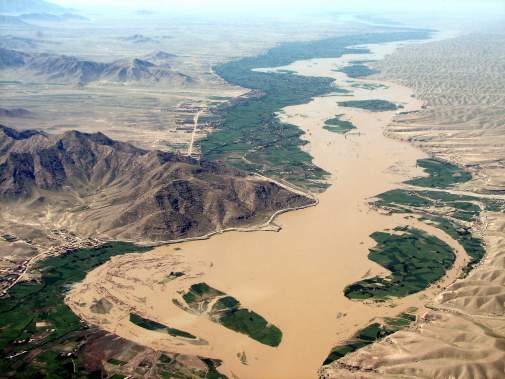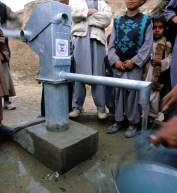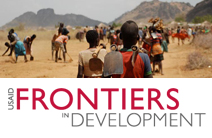- Agriculture and Food Security
- Democracy, Human Rights and Governance
- Economic Growth and Trade
- Education
- Environment and Global Climate Change
- Frontiers in Development
- Gender Equality and Women's Empowerment
- Global Health
- Science, Technology and Innovation
- Water and Sanitation
- Working in Crises and Conflict
Enhancing Water and Disaster Risk Reduction

Water is a key variable in the causes and impacts of many natural disasters.
About 90 percent of disaster events are caused by water/climate-related hazards, such as floods, droughts, hurricanes, storm surges, and landslides. As climate change increases the frequency and intensity of extreme weather, the number of water-related disasters is expected to rise.
To adapt to and mitigate the impact of natural disasters, climate variability, and global climate change, USAID works with developing countries to:
- Reduce the risk of droughts and floods through more effective water resources management.
- Assist countries with the installation and management of disaster monitoring and warning systems.
- Promote the restoration of healthy ecosystems for, among other reasons, their buffering effect on disasters.
- Re-establish functioning water supply and sanitation systems as a critical component of effective and timely responses to natural disasters.
USAID activities in disaster risk reduction include:
- A rapid response program in Ethiopia that has assisted in the construction and rehabilitation of water points and catchments, training of local health workers in emergency health promotion, and the distribution of emergency water treatment chemicals, which benefitted more than 400,000 people in fiscal year 2011.
- In the aftermath of Tropical Storm Washi in the Philippines, USAID supplied nearly 8,000 gallons of water, and assisted in the distribution of water supply, sanitation, and hygiene assistance for 10,730 people in evacuation centers.
- In Haiti, USAID/OFDA provided more than $7 million to support WASH efforts in cholera prevention in fiscal year 2011. Ten thousand community health workers were trained in hygiene promotion and provided with soap and water purification supplies for distribution. In total, 15 million water purification tablets and 33,180 hygiene kits were distributed.
Many so called “natural” disasters are avoidable. By working with developing countries to improve management of land and water resources, or inadequate disaster planning, preparation, and response, USAID is helping nations reduce vulnerability to natural disasters and global climate change.








Comment
Make a general inquiry or suggest an improvement.